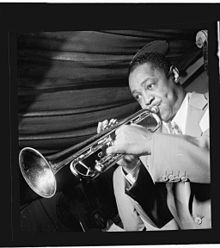
Daily Dose Of Jazz…
Walter “Rosetta” Fuller was born on February 15, 1910 in Dyersburg, Tennessee, first learning to play the mellophone as a child before settling on trumpet. He played in a traveling medicine show from age 14, then played with Sammy Stewart in the late 1920s.
Fuller In 1930 he moved to Chicago and played with Irene Eadie and Her Vogue Vagabonds. In 1931 he began a longtime partnership with Earl Hines, remaining with him until 1937, when he left to join Horace Henderson’s ensemble. After a year with Henderson he returned to Hines’ band but once again left Hines in 1940 to form his own band, playing at the Grand Terrace in Chicago and the Radio Room in Los Angeles. Among his sidemen were Rozelle Claxton, Quinn Wilson, Omer Simeon and Gene Ammons.
Fuller got the nickname “Rosetta” based on his singing on the 1934 Hines recording of the song of the same name. He would lead bands on the West Coast for over a decade and play as a sideman for many years afterward. On April 20, 2003 trumpeter and vocalist Walter Fuller passed away in San Diego, California.
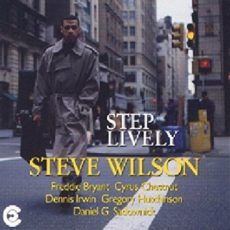
Daily Dose Of Jazz…
Steve Wilson was born February 9, 1961 in Hampton, Virginia. As a teenager, Wilson played in various R&B and funk bands and after a year of playing with Stephanie Mills he attended Virginia Commonwealth University. By 1987 he moved to New York, where he established himself as a sideman performing with American Jazz Orchestra, the Mingus Big Band and the Smithsonian Jazz Orchestra among others.
Wilson toured Europe in 1988 with Lionel Hampton and was a member of “Out Of The Blue”, an ensemble featuring young Blue Note musicians. An accomplished flautist and alto and soprano saxophonist, he also plays the clarinet and piccolo and has played and recorded with the Dave Holland Quintet, the Chick Corea Origin Sextet, with Japanese composer Yoko Kanno, has been a member of the Seatbelt’s New York Musicians, the Blue Note 7 and has performed as a soloist for Queen Elizabeth II and Prince Philip.
In 1997 he formed the Steve Wilson Quartet and has performed together for over a decade and produced two CDs. He also heads a larger ensemble, Generations, which performs jazz classic and original compositions.
He has held teaching positions in several schools and Universities, as well as holding jazz clinics, notably at the Manhattan School of Music, SUNY at Purchase, Columbia University, has been artist-in-residence at Hamilton College, Old Dominion and University of North Carolina and continues to maintain a busy career as a session musician both in studio and on tour.
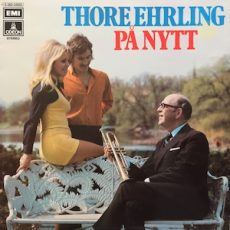
Daily Dose Of Jazz…
Thore Ehrling was born December 29, 1912 in Stockholm, Sweden and played with the Frank Vernon Ensemble from 1930 to 1934. At the same time he studied at the Royal Swedish Academy of Music.
From 1935 to 1938 he played under Håkan von Eichwald and did arrangement and composition work on the side. He started his own ensemble in 1938, which grew into a big band in the nineteen years it was active. This group played popular music and jazz, recorded frequently, and played often on Swedish radio.
The group featured many sidemen who went on to become prominent on the Swedish jazz scene, such as Uffe Baadh and Carl-Henrik Norin, and accompanied popular Swedish singers such as Inger Berggren and Lily Berglund.
Trumpeter, composer and bandleader Thore Ehrling, who led jazz and popular music ensembles, died in Stockholm, Sweden on October 21, 1994.
More Posts: bandleader,composer,history,instrumental,jazz,music,trumpet
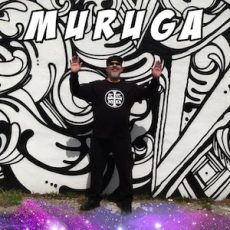
Daily Dose Of Jazz…
Muruga Booker was born Steven Bookvich on December 27, 1942 in Highland Park, Michigan at Highland Park General Hospital. His father played accordion ndfirst played the accordion before taking up drums as a preteen. He studied under Misha Bichkoff, a Russian music teacher and played drums professionally in 1961 with “The Low Rocks” in Detroit, Michigan as Steve Booker, achieving local recognition playing in 1962.
1964 saw him playing with folk-rock singers, psychedelic folk rock band and was a member of The Casuals to back up Brenda Lee. In 1968 he joined Paul Winter and The Winter Consort, and performed on their album Something in the Wind. In 1969,he played Woodstock, met Swami Satchidananda who gave him the name Muruga. He went on to play with Ted Nugent, record with Allen Ginsberg and Bob Dylan before joining Darius Brubeck, and forming the electronic experimental trio MBR. Then he toured as part of the Darius Brubeck Ensemble, and played with Dave Brubeck, Gerry Mulligan, Paul Desmond and Alan Dawson.
He recorded with Weather Report in the Seventies, moved to New York City and worked on several projects. Back in Detroit he left jazz and became a member of George Clinton’s P-Funk All-Stars. He move to Oakland, California in mid-1985 and formed Murunga UFM, with his next move being to Ann Arbor, Michigan where he established a recording studio called Sage Ct. Studio..
In 2003 Booker returned to playing and recording jazz as the Global Jazz Trio and as a five-piece group called The Global Jazz Project before creating a duo.
Drummer Muruga Booker, who won Outstanding World Music Instrumentalist and six Detroit Music Awards, continues to perform and record in a variety of music genres.
More Posts: bandleader,crums,history,instrumental,jazz,music
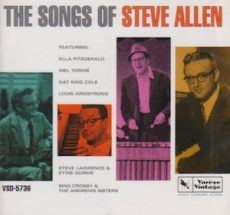
Daily Dose Of Jazz…
Stephen Valentine Patrick William Allen was born in New York City, on December 26, 1921. As an only child and with his father dying when he was raised on the South Side of Chicago, Illinois largely by his mother’s Irish Catholic family. Running away from home at 16 he easily took to begging. A short stint in the Army was derailed by asthma and he was discharged.
He was a pianist and a prolific composer. By his own estimate, he wrote more than 8,500 songs, some of which were recorded by numerous leading singers. Allen won the 1964 Grammy Award for Best Original Jazz Composition for “Gravy Waltz, for which he wrote the lyrics. His songs have been performed and/or recorded by Count Basie, Tony Bennett, Bobby Darin, Ella Fitzgerald, Mark Murphy, Judy Garland, Aretha Franklin, Lionel Hampton, Claire Martin, Oscar Peterson, the McGuire Sisters and Ray Brown among otheres.
He also wrote more than 50 books, including novels, children’s books, and books of opinions, including his final book, Vulgarians at the Gate: Trash TV and Raunch Radio published in 2001.
Pianist, composer, writer, actor, comedian, television and radio personality Steve Allen, who in 1954 co-created and was the first host of The Tonight Show, died due to a ruptured blood vessel on October 30, 2000 in Los Angeles, California. He was 78.
More Posts: composer,history,instrumental,jazz,music,piano,writer


